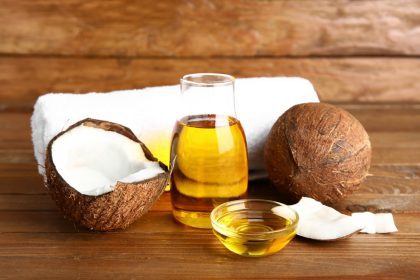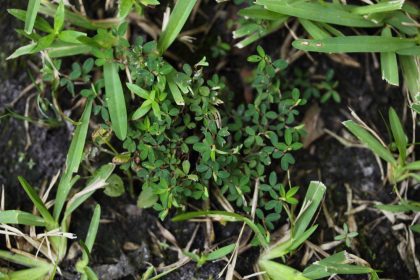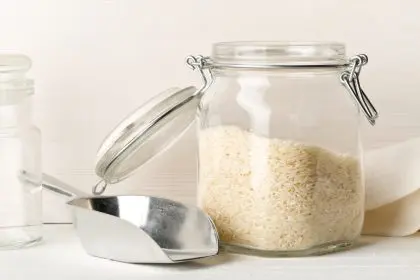Your medicine cabinet is probably stuffed with vitamin bottles that you bought with the best intentions but rarely remember to take consistently. Meanwhile, there’s a green powder sitting in health food stores that contains more bioavailable nutrients than your entire supplement collection. Moringa oleifera, often called the “miracle tree,” has been quietly providing complete nutrition to communities across Africa and Asia for thousands of years.
The nutrient density of moringa is so impressive that it sounds too good to be true. This single plant contains significant amounts of vitamins A, C, and E, multiple B vitamins, calcium, potassium, iron, magnesium, and complete proteins with all essential amino acids. It’s like nature decided to cram an entire pharmacy into one convenient leaf.
But here’s the question that’s been nagging at nutrition experts: can this single superfood actually replace the synthetic multivitamins that millions of people take daily? The answer is more complex than the marketing claims suggest, but the science is revealing some surprising truths about whole food nutrition versus isolated supplements.
Moringa’s nutrient profile puts multivitamins to shame
When you compare moringa leaf powder to the average multivitamin, the numbers are staggering. Moringa contains seven times more vitamin C than oranges, four times more calcium than milk, four times more vitamin A than carrots, and three times more potassium than bananas. These aren’t marketing exaggerations, these are documented nutritional facts.
The protein content in moringa is particularly impressive because it contains all nine essential amino acids that your body can’t produce on its own. Most plant proteins are incomplete, requiring you to combine different sources to get all essential amino acids. Moringa provides them all in one convenient package.
The mineral profile of moringa is equally remarkable. It contains significant amounts of iron, magnesium, phosphorus, calcium, and zinc, all in naturally occurring forms that your body recognizes and can utilize efficiently. These minerals work synergistically with the vitamins and other compounds in moringa, creating enhanced absorption and utilization.
Unlike synthetic multivitamins that provide isolated nutrients, moringa delivers these vitamins and minerals alongside hundreds of other beneficial compounds like antioxidants, anti-inflammatory agents, and phytonutrients that support overall health and enhance nutrient absorption.
Your body absorbs natural nutrients differently than synthetic ones
The biggest advantage moringa has over traditional multivitamins lies in bioavailability, which is how well your body can actually use the nutrients you consume. Synthetic vitamins are created in laboratories and don’t always match the exact molecular structure of naturally occurring nutrients.
Your digestive system evolved to process nutrients from whole foods, not isolated compounds created in factories. When you consume nutrients from moringa, they come packaged with cofactors, enzymes, and other compounds that help your body recognize, absorb, and utilize them effectively.
Synthetic vitamin C, for example, is just ascorbic acid, while vitamin C from moringa comes with bioflavonoids, enzymes, and other compounds that enhance absorption and function. Your body treats these two forms of vitamin C very differently, with the natural form being more readily absorbed and retained.
The chelation process that occurs naturally in plants also makes minerals more absorbable. Plant-based minerals are bound to amino acids and other organic compounds that help transport them across your intestinal wall, while synthetic minerals often pass through your system without being absorbed.
Multivitamins have some serious absorption problems
Most people don’t realize that traditional multivitamins have notoriously poor absorption rates. Studies have shown that many synthetic vitamins pass through your system largely unchanged, leading to what nutritionists call “expensive urine.” Your body simply can’t process these isolated nutrients effectively.
The “one-size-fits-all” approach of multivitamins also creates problems because different nutrients compete for absorption. Taking large amounts of multiple nutrients simultaneously can actually interfere with absorption of individual vitamins and minerals.
Timing is another issue with traditional multivitamins. Fat-soluble vitamins need to be taken with fats to be absorbed properly, while some minerals should be taken on an empty stomach. Most people take their multivitamin whenever it’s convenient, which often isn’t optimal for absorption.
The quality control in the supplement industry is also inconsistent. What’s listed on the label isn’t always what’s in the bottle, and many multivitamins contain fillers, artificial colors, and preservatives that can interfere with nutrient absorption or cause digestive issues.
Phytonutrients in moringa provide bonus health benefits
Beyond basic vitamins and minerals, moringa contains over 40 different antioxidant compounds that you won’t find in any multivitamin. These phytonutrients work together to provide anti-inflammatory effects, support immune function, and protect against cellular damage from oxidative stress.
Quercetin, one of the major antioxidants in moringa, has been shown to have antihistamine properties and may help with allergic reactions and inflammation. Chlorogenic acid, another compound found in moringa, helps regulate blood sugar levels and may support weight management.
The isothiocyanates in moringa have antimicrobial properties and may help support liver detoxification processes. These compounds work synergistically with the vitamins and minerals to provide health benefits that go far beyond basic nutrition.
This complexity of naturally occurring compounds is impossible to replicate in synthetic supplements. Even if supplement manufacturers tried to include all these beneficial compounds, the interactions between them in their natural plant matrix can’t be duplicated in a laboratory setting.
Moringa has limitations that multivitamins can address
Despite its impressive nutrient profile, moringa isn’t perfect as a complete multivitamin replacement. It’s relatively low in certain nutrients that are commonly included in multivitamins, particularly vitamin D, vitamin B12, and omega-3 fatty acids.
Vitamin B12 is particularly problematic because it’s primarily found in animal products, making it difficult for vegetarians and vegans to get adequate amounts from plant sources alone. While moringa contains some B vitamins, the B12 content isn’t sufficient for people who don’t consume animal products.
The bioavailability of certain nutrients in moringa can also vary depending on how it’s processed and stored. Fresh moringa leaves provide different nutrient levels than dried powder, and improper storage can degrade some of the more sensitive vitamins.
Individual nutrient needs also vary significantly based on age, gender, health status, and lifestyle factors. While moringa provides a broad spectrum of nutrients, it might not provide optimal amounts of specific nutrients for every individual’s unique needs.
Quality and sourcing matter enormously with moringa
Not all moringa products are created equal, and the quality can vary dramatically depending on growing conditions, harvesting methods, and processing techniques. Moringa grown in nutrient-rich soil will have higher nutrient density than moringa grown in depleted soil.
The drying and processing methods also significantly impact nutrient retention. Moringa that’s been over-processed or exposed to high heat during drying may have reduced vitamin content, particularly for heat-sensitive nutrients like vitamin C.
Organic certification becomes particularly important with moringa because the leaves can concentrate both nutrients and contaminants from the soil. Conventionally grown moringa may contain pesticide residues or heavy metals that could offset its health benefits.
The freshness of moringa powder also matters for nutrient content. Like all plant-based nutrients, the vitamins and antioxidants in moringa degrade over time, especially when exposed to light, air, and heat.
The hybrid approach might be your best strategy
Rather than viewing moringa and multivitamins as an either-or choice, many nutrition experts recommend a hybrid approach that combines the benefits of both. Using high-quality moringa as your nutritional foundation while supplementing with specific nutrients that might be lacking.
This approach allows you to get the synergistic benefits and superior bioavailability of whole food nutrition from moringa while ensuring adequate intake of nutrients that might be insufficient in plant-based sources alone.
You might use moringa daily for your base nutrition and add specific supplements like vitamin D, B12, or omega-3s based on your individual needs and blood test results. This targeted approach is often more effective and cost-efficient than taking a generic multivitamin.
Regular blood testing can help you identify which nutrients you actually need to supplement rather than taking a shotgun approach with a multivitamin that might include nutrients you already get adequately from food and moringa.
The key is understanding that nutrition is highly individual, and what works as a complete solution for one person might need modification for another. Moringa is an excellent nutritional foundation, but it’s not necessarily a complete replacement for all supplemental needs for every person.














